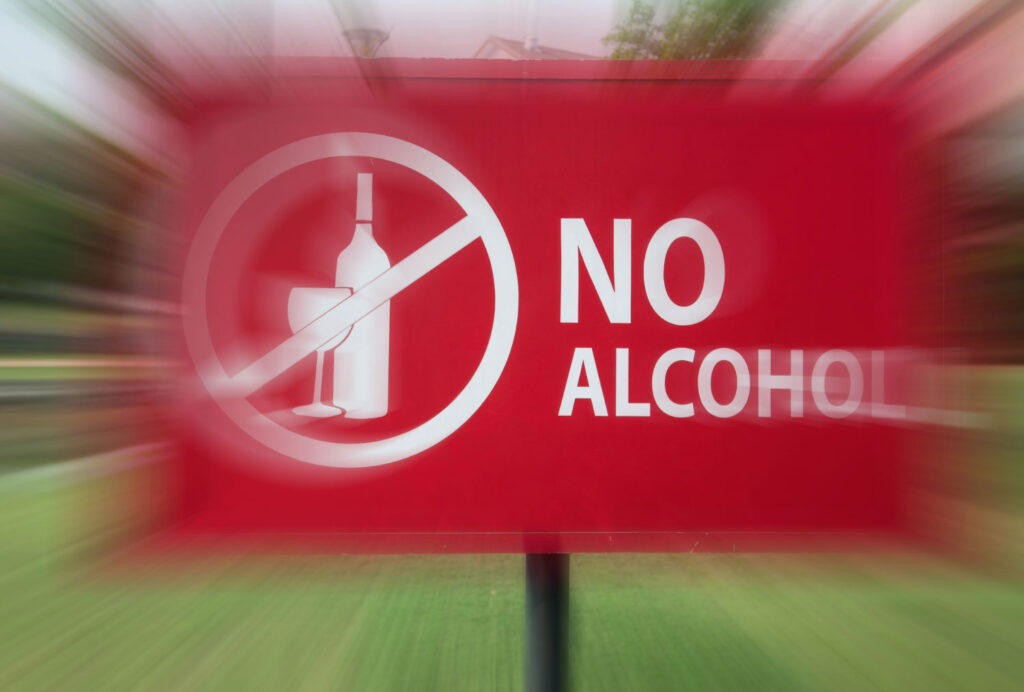In fall 2024, more than 185,000 students enrolled at a public Illinois university and more than 265,000 students enrolled at an Illinois community college. For many, the transition to college marks an exciting new chapter filled with independence, self-discovery and growth. But with this freedom often comes social and peer pressure — especially when it comes to alcohol.
- Nearly 80% of college students consume alcohol to some extent.
- About 20% of students develop an alcohol use disorder (AUD), leading to health complications.
- Around 2,000 students die each year from unintentional, alcohol-related injuries.
There are several signs and symptoms students may exhibit when consuming alcohol.
Physical
- Frequent hangovers (fatigue, headaches, red eyes, sensitivity to light/sound)
- Strain on the nervous system (high blood pressure, rapid heartbeat, tremors, dizziness)
- Cognitive and mood shifts (anxiety, depression, irritability)
- Blackouts or memory lapses:
- En bloc: Complete memory loss until the blood alcohol concentration (BAC) lowers and brain function returns
- Fragmentary: Partial memory gaps that may return with cues
Behavioral
- Drinking alone or in secret
- Making excuses to drink (to relax, deal with stress or “feel normal”)
- Mood swings or irritability tied to drinking
- Neglecting work, school or home responsibilities
- Withdrawing from friends and family, or shifting social circle
- Repeated unsuccessful attempts to cut back
- Spending significant time drinking or recovering
- Financial problems or unexplained need for money
- Risky behavior (legal trouble, accidents, DUIs)
Psychological
- Heightened anxiety, paranoia or fear without clear cause
- Lack of motivation; appearing tired or “spaced out”
- Mood swings, irritability, angry outbursts
- Personality or attitude changes
- A need to engage in addictive behaviors
- Worsening of underlying conditions
Binge drinking on campus
Many college students see alcohol consumption as a normal part of college life. Aggressive consumption of alcohol, or binge drinking, is popular on college campuses due to a combination of social, developmental and environmental factors. Binge drinking is a pattern of alcohol consumption that raises one’s blood alcohol concentration (BAC) to 0.08% or higher and can lead to:
- Hangovers: Dehydration-driven, ranging from mild (still recalling events) to severe (headaches, fatigue, nausea, dizziness), along with mental symptoms like irritability and difficulty concentrating.
- Blackouts: Memory may return with cues or complete memory loss until sober.
- Alcohol poisoning: A life-threatening condition that requires immediate medical attention and may involve interventions such as IV fluids, oxygen therapy or stomach pumping.
Potential consequences of alcohol misuse
The consequences of alcohol use among college students are more significant, destructive and costly than many people realize:
- Academic impact: About 1 in 4 students report falling behind in class or receiving lower grades due to drinking.
- Safety concerns: Nearly 700,000 students (ages 18–24) report being assaulted by someone under the influence each year. One in five women experiences sexual assault during college, with alcohol often involved.
- Health risks: 14% of full-time students ages 18–22 met criteria for alcohol use disorder.
Screening: The CAGE tool
Using the CAGE mnemonic is a great way to begin a conversation with a student regarding their alcohol consumption.
CAGE
- Cut down
- Have you felt you should cut down?
- Annoyed by criticism of drinking
- Have people annoyed you by criticizing your drinking?
- Guilty feelings about drinking
- Have you felt guilty about drinking?
- Eye-opener
- Have you drunk alcohol first thing in the morning to steady your nerves or start the day?
These questions can spark reflection and help students recognize when alcohol use may be a problem.
The role of higher education
Illinois higher education institutions play a vital role in student well-being. One way to increase awareness is through educational programs and substance use training. For example, colleges can implement mandatory training sessions for students that highlight the risks and consequences of alcohol consumption.
Additionally, colleges can enhance awareness by providing access to resources and support services, such as:
- Offering peer and professional support groups
- Partnering with local community health organizations
- Hosting guest speakers and awareness campaigns
- Providing hotline numbers and confidential support resources
Excessive alcohol use can lead to hangovers, blackouts, alcohol poisoning, and increased risks of violence and assault. But with the right mix of education, resources and support, higher education institutions can empower students to make safer, more informed choices.
Further reading:
 Kyle Fontaine, MBA, MSc, BSc, BEd, Co-author
Kyle Fontaine, MBA, MSc, BSc, BEd, Co-author
Kyle works for both the Illinois Campus Cares Technical Assistance Center and the Illinois Behavioral Health Workforce Center at SIU School of Medicine. Before stepping into this role, Kyle was a high school teacher supporting young adults who thrived in nontraditional learning environments. His passion for creating inclusive, supportive spaces carries into his current work. As a certified Mental Health First Aid Instructor, Kyle partners with colleagues to break down the stigma around behavioral health, empowering others to listen, offer support and respond confidently when someone is struggling.
 Taylor Blakeley, PhD, CRSS, Co-author
Taylor Blakeley, PhD, CRSS, Co-author
Dr. Blakeley is an assistant professor in the Dept. of Psychiatry at SIU School of Medicine, project manager with the Illinois Behavioral Health Workforce Center, and adjunct professor at Purdue University Global. He holds a Ph.D. and Master’s in Industrial/Organizational Psychology from Liberty University, graduating with highest honors, and a Bachelor’s in Psychology from Benedictine University. He is a Certified Recovery Support Specialist and former clinical supervisor in behavioral health and correctional institutions. Dr. Blakely teaches Mental Health First Aid to various populations and is an advocate for developmentally disabled individuals seeking employment.

